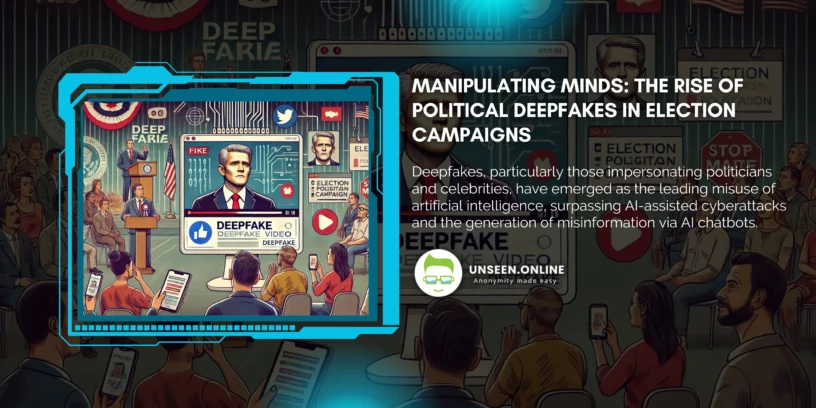Deepfakes, particularly those impersonating politicians and celebrities, have emerged as the leading misuse of artificial intelligence, surpassing AI-assisted cyberattacks and the generation of misinformation via AI chatbots.
This finding comes from a study conducted by DeepMind and Google’s Jigsaw, covering 200 incidents between January 2023 and March 2024, as reported by The Financial Times.
The primary intent behind creating these deceptive digital personas is to sway public opinion, which accounts for 27% of malicious AI activities. The research highlights other prevalent abuses like defamation, celebrity scam ads, harassment, spreading propaganda, and parody.
With several elections looming in 2024, the prevalence of political deepfakes has become a significant concern. In response, some U.S. companies have prohibited their chatbots from producing election-related content, and regulators are pushing for mandatory disclosures concerning AI-generated content in election advertisements.
A notable incident occurred ahead of the New Hampshire presidential primaries when a deepfake robocall, purportedly from President Biden, instructed Democrats to stay home.
The mastermind, a consultant for one of Biden’s rivals, now faces multiple felony charges and a potential $6 million fine from the FCC. Furthermore, Microsoft has alerted that a group possibly linked to the Chinese government, known as “Storm-1376,” is using AI-generated content to stir division in the U.S. and Taiwan.







